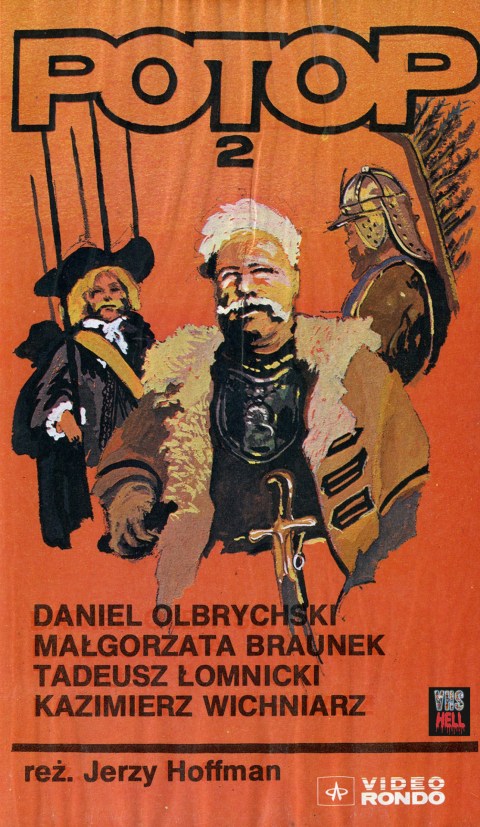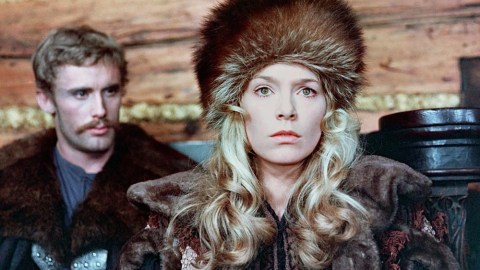17. 4. – 19. 4. 2026
The Deluge Part 2

 Original title: Potop 2
Original title: Potop 2Director: Jerzy Hoffman
Production: 1974, Poland / USSR
Length: 138 min.
Screened:
70mm film seminar 2007: 70mm 2.2:1, Colours intact, MG, Spoken language: Polish, Subtitles: SlovakKRRR! 2025: 70mm 2.2:1, Colours intact, MG 6ch, Spoken language: Polish, Subtitles: Slovak, English
Annotation for KRRR! 2025
The two‑part historical epic The Deluge was made by Jerzy Hoffman in 1974, based on the novel of the same name by Henryk Sienkiewicz. It was the second part of his trilogy of adaptations of the author’s famous historical novels, which he began with the film Colonel Wolodyjowski (1969) and concluded twenty‑five years later with the film With Fire and Sword (1999). The plot of the sweeping, almost five‑hour work is set in the 17th century, specifically in the period of the Swedish invasion and internal betrayals that threatened the cohesion of the Polish‑Lithuanian Commonwealth. In addition to Hoffman, historian Adam Kersten and writer Wojciech Żukrowski contributed to the script, helping to translate the complex and extensive plot into film form with an emphasis on dramatic clarity and historical fidelity. However, the exceptionality of the film lies primarily in its extraordinary production background. Thanks to the Polish‑Soviet co‑production, it was possible to use the technical and logistical capacities of the Mosfilm studio and the deployment of a cavalry regiment of the Soviet army. The filming lasted over five hundred days and took place in Poland, Ukraine and Belarus. The film features hundreds of actors, many thousands of extras and tens of thousands of costumes were made for it. The Deluge won numerous awards at the time of its release and also earned international attention thanks to its Academy Awards nomination for Best Foreign Language Film. Although the award ultimately went to Fellini's Amarcord (1973), The Deluge became one of the most important films of Polish cinema of the 1970s. According to available data, it was an extraordinary success not only in Poland, where it attracted 28 million viewers by 1987, but also in the Soviet Union, where it sold approximately 30 million tickets. Soviet co‑production probably facilitated distribution throughout the Eastern Bloc.
Although Jerzy Hoffman directed other historical blockbusters such as Army of Valhalla (2003) or The Battle of Warsaw 1920 (2011), and was also famous for his more modest titles (The Quack, 1981; Gangsters and Philantropists, 1962), his most famous and internationally successful film remains The Deluge. It returns to the Krnov screen at the 70mm festival after eighteen years – it was first shown during the second festival year.